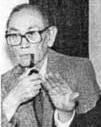Should the Government Limit Individual Liberties During Wartime?
Since the construction of the constitution, there have been discrepancies about it's boundaries. Specifically, when it comes to limitations of our civil liberties. Many cases have gone through the supreme courts pertaining to just this subject, from very large cases i.e. Korematsu vs. United States (arguing the constitutionality of FDR's executive order 9066) to the free speech cases, Tinker vs. Des Moines, or Schenck vs. United States. Here, in the middle of a war on terrorism, and on the brink of war with Iraq, war time security policies become eminent,, these cases and issues are brought into new light, but we must scrutinize policy to ensure that actions by our government uphold the principles of a democratic society, accountable government and international law, and that all decisions are taken in a manner consistent with the Constitution.
Security is given at the expense of liberty.
That is, for one's peace of mind, one must sacrifice one's freedoms. For example, if you wish to protect yourself from people entering your house without consent, you must lock your door. The act of locking a door, hinders you from walking in and out freely, thus giving up a freedom for peace of mind.
During World War II, Presidential Executive Order 9066 and congressional statutes gave the military authority to exclude citizens of Japanese ancestry from areas deemed critical to national defense and potentially vulnerable to espionage. Korematsu remained in San Leandro, California and violated Civilian Exclusion Order No. 34 of the U.S. Army. The question presented was: If the President and Congress go beyond their war powers by implementing exclusion and restricting the rights of Americans of Japanese descent? Korematsu's argument was that, it infringed against his 5th amendment right, also martial law had not...


